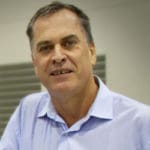Charities Must Not Be Afraid To Invest in NDIS Future
1 September 2016 at 10:52 am
Opinion: As the NDIS gathers pace nationally, Endeavour Foundation chief executive Andrew Donne writes about why charities must not be afraid to invest in the NDIS environment.
The NDIS constitutes a seismic shift for the disability sector. But now is not the time to lose faith – it’s more important than ever that organisations have the courage of their convictions, and continue to invest in the future.
The concept of a National Disability Insurance Scheme was once an aspiration – people dreamed of targeted support, better coordination and better access to services and, ultimately, those dreams came true. But this is the real world, a place where good intentions are beset by challenges and where there is no magic wand, only grit and determination.
Change on such a scale will always cause ripples, if not tidal waves. It would be easy for Not for Profit providers to panic – to forecast doom. But the sector has been given a new impetus and it’s critical that even really difficult issues, such as payments from the NDIS portal, are not allowed to muddy the waters.
We finally have a scheme that seeks to redress chronic underfunding and negativity about the future. Those ills, which have plagued the sector for decades, cannot be healed overnight. To expect instant success with the practicalities of implementation is to be doomed to disappointment.
Organisations need to hold their nerve as we turn our backs on block-funding – an environment that effectively disempowered people with a disability who should have been driving forward their own ambitions. It is our role, as service providers, to offer a steadying hand to those embarking upon this journey – to reassure and to partner with those who fear the loss of hard-fought gains and feel intimidated by change. And to support them in their pursuit of more and better.
Being responsive rather than reactive must be the way of the future, with the sector doing more than just adapting to the “new way”, with a short-term view. Providers really have to see this as an opportunity to be more creative in every regard, engaging with people with a disability and carers to understand the services they want and need to access under the NDIS.
Of course we need to be lean and agile, but that goes for any organisation. The real goal is to create an environment where we are meeting needs which will continue to change and people’s expectations which, quite rightly, will continue to grow.
For the last number of years we’ve been looking at community support more holistically, with a vision of enhancing the range of services we can offer, but also because we believe that the disability sector should not be an island. By partnering with organisations which have a compatible ethos, and which aspire to an empowering and empowered community for all, we believe we can achieve more than we would do in isolation.
This is undoubtedly a time of great change for people with a disability but, from Endeavour Foundation’s perspective, it’s also an opportunity to ensure we’re in tune with the real possibilities that people can see for the future. We’re learning all the time, as we enter new markets and join individuals and families on their NDIS journey, and we’re poised to shape our organisation accordingly.
For the first time the concept of person centricity, an ethos championed on the front line of disability services, is entrenched within the funding framework. That’s an incredible shift, and one that is generating a mixture of hope and fear for people with a disability and their families.
We, as service providers and advocates, have a responsibility to show our belief in a better future under the NDIS through our actions as well as our words. Many great ideas have failed in execution. It’s our role to ensure that we support the NDIS to deliver on its promise.
About the author: Andrew Donne is the chief executive of Endeavour Foundation which supports more than 4,000 people with a disability throughout Queensland, New South Wales, and Victoria through support in daily living, at work, with relationships and independence, and in being part of the community.








